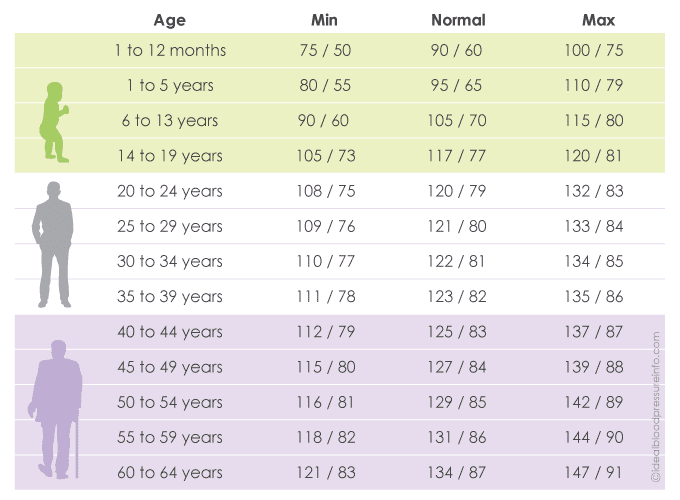Maintaining healthy blood pressure is crucial for overall well-being and longevity. Blood pressure is a measure of the force exerted by circulating blood on the walls of the body’s arteries. It is an essential indicator of cardiovascular health. In this article, we will explore various aspects of blood pressure, including what constitutes healthy levels, factors affecting blood pressure, and effective strategies to maintain it within a healthy range.
Understanding Blood Pressure
Blood pressure is expressed in two numbers: systolic and diastolic. The systolic pressure (the higher number) measures the pressure in your arteries when your heart beats, while the diastolic pressure (the lower number) measures the pressure in your arteries when your heart rests between beats. A typical healthy blood pressure reading is around 120/80 mm Hg.
Normal Blood Pressure Ranges
- Normal: Systolic less than 120 mm Hg and diastolic less than 80 mm Hg.
- Elevated: Systolic 120-129 mm Hg and diastolic less than 80 mm Hg.
- Hypertension Stage 1: Systolic 130-139 mm Hg or diastolic 80-89 mm Hg.
- Hypertension Stage 2: Systolic 140 mm Hg or higher or diastolic 90 mm Hg or higher.
- Hypertensive Crisis: Systolic over 180 mm Hg and/or diastolic over 120 mm Hg.

Factors Influencing Blood Pressure
Several factors can influence blood pressure, including:
1. Diet
A diet high in sodium can increase blood pressure. Conversely, diets rich in potassium, calcium, and magnesium can help control blood pressure. The DASH (Dietary Approaches to Stop Hypertension) diet is specifically designed to combat high blood pressure.
2. Physical Activity
Regular physical activity strengthens the heart, enabling it to pump blood with less effort, thus lowering the pressure on the arteries. Aim for at least 150 minutes of moderate-intensity exercise or 75 minutes of vigorous-intensity exercise per week.
3. Weight Management
Being overweight can increase your risk of high blood pressure. Even a small amount of weight loss can help reduce blood pressure. Maintaining a healthy weight through a balanced diet and regular exercise is vital.
4. Stress Levels
Chronic stress can contribute to high blood pressure. Practicing stress-reducing techniques such as mindfulness, meditation, and deep-breathing exercises can be beneficial.
5. Alcohol and Tobacco Use
Excessive alcohol consumption and tobacco use can raise blood pressure. Limiting alcohol intake and quitting smoking can significantly improve blood pressure levels.
6. Genetics
Family history plays a role in determining blood pressure levels. If high blood pressure runs in your family, you may be more susceptible and should monitor your blood pressure regularly.
Strategies to Maintain Healthy Blood Pressure
Maintaining healthy blood pressure requires a combination of lifestyle changes and, in some cases, medication. Here are some effective strategies:
1. Adopt a Heart-Healthy Diet
Incorporate the following into your diet to help lower blood pressure:
- Fruits and Vegetables: Rich in potassium, which helps balance sodium levels.
- Whole Grains: High in fiber, which can help reduce blood pressure.
- Low-Fat Dairy: Provides calcium and vitamin D, both important for heart health.
- Lean Proteins: Such as fish, poultry, and legumes.
- Healthy Fats: Including olive oil and avocados, which can help reduce inflammation and improve heart health.
2. Reduce Sodium Intake
High sodium levels can cause the body to retain water, increasing blood pressure. Aim to consume less than 2,300 mg of sodium per day, and ideally, limit intake to 1,500 mg per day.
3. Increase Physical Activity
Regular exercise helps lower blood pressure by improving heart health. Activities like walking, jogging, cycling, and swimming are excellent choices. Strength training can also be beneficial.
4. Manage Stress Effectively
Chronic stress contributes to high blood pressure. Techniques such as yoga, meditation, and deep breathing can help manage stress levels. Additionally, ensure you get adequate sleep, as poor sleep can negatively affect blood pressure.
5. Limit Alcohol and Avoid Tobacco
Excessive alcohol consumption can raise blood pressure. Men should limit themselves to two drinks per day, and women to one drink per day. Quitting smoking is one of the best things you can do for your heart health.
6. Monitor Your Blood Pressure
Regular monitoring can help you keep track of your blood pressure and make necessary adjustments to your lifestyle or medication. Home blood pressure monitors are widely available and easy to use.
7. Follow Medication Regimens
If lifestyle changes alone are not sufficient, medication may be necessary. There are various types of blood pressure medications, including diuretics, ACE inhibitors, and beta-blockers. It is crucial to follow your doctor’s prescription and guidance.
The Role of Regular Check-Ups
Regular check-ups with your healthcare provider are essential for monitoring and managing blood pressure. These visits can help detect any changes early and adjust your treatment plan accordingly. Your doctor may also recommend additional tests to assess the health of your heart and blood vessels.
Conclusion
Maintaining healthy blood pressure is a cornerstone of cardiovascular health and overall well-being. By adopting a heart-healthy diet, engaging in regular physical activity, managing stress, and avoiding harmful habits like smoking and excessive drinking, you can significantly reduce your risk of hypertension and its associated complications. Regular monitoring and medical check-ups further ensure that you keep your blood pressure within a healthy range. Prioritize your heart health today to enjoy a longer, healthier life.



